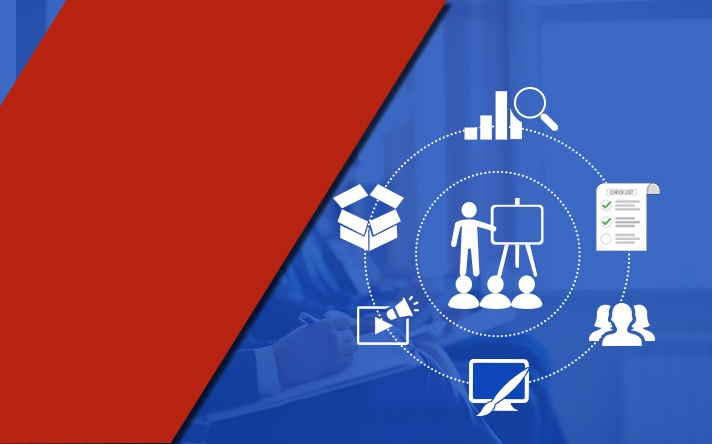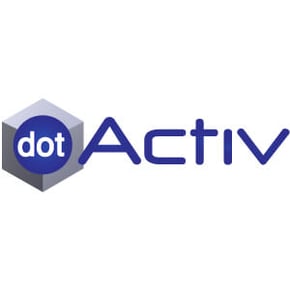
All retailers must provide their staff with suitable product training. Of that, there is no doubt. However, if you glance at the average supply chain, you’ll know that retailers aren’t independent. They are reliant on other parties such as your manufacturers, wholesalers, and suppliers for any success. What’s more, each demands product training to help them fulfil their roles.
Why suppliers should offer product training
We mentioned in a previous piece that any questions around why you should focus on product training seem superfluous. That’s from a retailer’s point of view. And we stand by that statement. Regardless of who you’re referring to, though, the simple fact of the matter is that if you work in the retail industry and you want to be effective, it’s crucial that you undergo some form of product training.
From the perspective of a supplier, we do need to be more exact.
That’s because you can classify your employees into three distinct groups. All of them, by definition, are customer-facing. There is your retailer-facing staff who work at Head Office; your retail-store facing staff who get involved at a store level, and your shopper-facing staff who deal directly with customers.
For the sake of this piece, we’re only focusing on your retail-store facing staff. Better described as your field marketers, they visit each of your stores to fulfil crucial functions.
These functions include amongst others, selling your products to independently-owned retailers, checking store layout and planogram compliance, and merchandising in-store. To be truly effective, they need product training.
[Online Course] Learn about key merchandising principles and methods with DotActiv Academy
But what type of product training?
For one, it can't be a blanket approach. You shouldn't choose one training programme and expect it to cover everything in minute detail. Retail is too broad a topic. Instead, you should search for retail training that speaks directly to each role that a field marketer fulfils.
What kind of product training should suppliers offer their field marketers?
As mentioned above, you task your field marketers with visiting your stores to perform various functions. Known as ‘store visit cycles’ they include answering questionnaires about what’s happening in the store and ensuring store compliance.
However, before they can do any of this, and before you can expect them to perform competently, you need to provide them with the right training to match each of their functions. That’s what you’ll find below.
For each task that we’ve listed, we’ve included the type of training that will help them fulfil that specific role.
1. Training that will help them to sell to independently-owned retailers
One of the first tasks that your field marketers need to perform is to sell your products to independently-owned retailers. Product training can help them.
How? Simple: such training can help your field marketers to communicate effectively with the managers of these stores. Since many of these store managers follow a decentralised buying structure - they make all buying decisions - you have the opportunity to build trust and confidence. That makes it easier to sell later on when you have a new product that you’d like them to stock.
More importantly, by training them up on your product before they attempt to sell it, you’re giving them the skills and knowledge to answer questions on the spot, thereby overcoming any common customer objections.
For example, if a retailer asks them why their store should stock your product over another, they will be ready. They’ll be able to list the benefits, back it up with any market data that they’ve collected; and state the reasons why it makes sense.
So what kind of product training would your field marketers need to undergo to perform this function?
For one, you need to train them on how to understand retailers needs and how your product fits in. Secondly, you need to teach them how to access what is known as just in time product information through online or other digital platforms.
It’s also important to give them hands-on experience so that they can become familiar with the products and services they are attempting to sell. One way of doing that is through practical demonstrations.
Lastly, you need to send your field marketers to trade fairs and conventions where they can network and pick up knowledge.
2. Training that will help them check for store and planogram compliance
The correct placement of products in stores plays a crucial role in driving retail sales for your supply business. Of course, that should be obvious - the easier it is for shoppers to find your products, the more profit you can make.
But, to ensure that you position your products correctly, you can’t expect it to happen - you need to do regular in-store checks. It’s here where your field marketers play a significant role.
By the way, this isn’t because you can’t trust a retailer to implement the planogram for the category. Instead, it’s an opportunity to ensure that the product grouping sees positive growth. By looking after your products and providing they get the space they deserve on the shelf, you’re looking after the best interests of the retailer.
Audit a store’s planogram compliance quickly and easily with specialised field marketing software
As for the type of product training that your field marketers should receive, that should be apparent. Since they check planogram compliance, any training needs to focus heavily on planograms. That includes how to read and understand them. Also, how to enforce them in-store.
There will be instances where a retailer hasn’t implemented a planogram correctly, and your field marketers need to know how to correct the mistake. They may also need to replace old stock, repack a shelf that has run out of stock, and negotiate special displays.
Besides that, field marketers need to understand the flow of a store and how customers shop. A good understanding of the store’s floor plan helps as does an understanding of department and category flows.
3. Training that will help them to audit your pricing and competitors
As much as you need to prepare your field marketers with the skills to sell your products and ensure they get the right placement, they also need to understand the bigger picture.
By that, we mean they need to know what’s happening in the greater market and more specifically your competitors.
That’s because in understanding the market, your field marketers can learn who the market brand leaders are as well as where your products sit in relation to them and all other products.
Besides that, they can also compare your price with your competitors. For example, are your products priced appropriately? If not, you can make the necessary adjustment.
For your field marketers to perform this function effectively, you would need to provide them with training that will assist them to understand how to price products. The retail course would also need to touch on pricing design.
Alongside that, your field marketers need the training to be able to identify the various factors you must consider when pricing your products.
That includes knowing the various questions to ask when setting prices. While you do need to adhere to market standards, you also need to consider how much your product costs you to produce as well as its perceived value by shoppers.
4. Training that will help them to merchandise products in-store
The last, but certainly, not least function that a field marketer needs to perform in-store is to merchandise products on the shelf where appropriate.
If you’re wondering why you need to get involved with merchandising, we have a few reasons why. You can read about each reason in this piece. In summary, if you don’t get involved, it weakens your relationship with the retailer. More importantly, it can affect the sales of the products that you supply since your products won’t receive the space on the shelf that they deserve.
In saying that, you might have noticed that this function is very similar to our above point around auditing planograms in-store. You should expect that. You can't build or execute a planogram without considering merchandising principles.
Efficient product training will help your field marketers to know which lines are fast sellers so that they can allocate more space to them. Also, interpreting retail data allows them to argue for more space for your products.
To be able to fulfil this role, your field marketers would, quite naturally, need to enrol in a merchandising course to learn about the necessary principles and tactics. The course would also need to include sections about understanding product flows, department flows, and category flows as well as a part on the different roles that merchandising equipment play in-store.
Conclusion
DotActiv Academy is DotActiv’s education portal where you can learn about all things retail and category management. From product placement and pricing strategies to merchandising techniques and the category management process, it’s there.
For more information about the various courses, visit the DotActiv Academy here.


